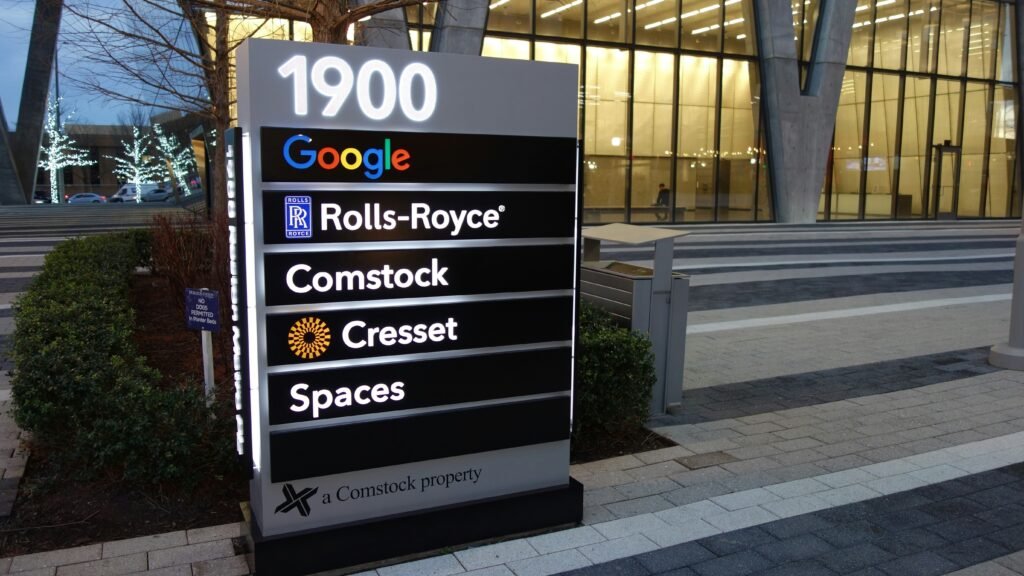
Corporate wiki
Introduction to Corporate Wikis
Corporate wikis are collaborative platforms designed to facilitate knowledge sharing, documentation, and collective contribution within organizations. These tools serve as digital repositories where employees can collaboratively create, edit, and manage content, ensuring that valuable insights and institutional knowledge are preserved for current and future team members. The purpose of a corporate wiki extends beyond mere information storage; it fosters a culture of collaboration and continuous improvement, enabling employees to leverage each other’s expertise and experiences.
One of the primary functions of a corporate wiki is to serve as a centralized repository of information. By organizing and documenting processes, policies, project updates, and best practices, organizations can create a comprehensive resource that is easily accessible. This centralization minimizes the risk of information silos that can occur when knowledge is dispersed across various individuals or departments. It ensures that crucial corporate history is documented comprehensively, providing clarity and context for employees seeking to understand the organization’s evolution.
Additionally, corporate wikis empower employees to contribute their knowledge and insights actively. This encourages a sense of ownership and engagement among employees, as they can see the direct impact of their contributions on organizational knowledge. Moreover, the collaborative nature of a corporate wiki allows for real-time updates, ensuring that the information remains relevant and up-to-date. This adaptability is essential in today’s fast-paced business environment, where rapid changes and advancements can render outdated knowledge less useful.
In conclusion, corporate wikis are pivotal tools that not only facilitate knowledge sharing but also play a crucial role in documenting corporate history. By establishing a structured space for collaboration, organizations can ensure that their collective insights and learning are preserved and accessible, thereby enhancing future endeavors and innovation.
The Evolution of Corporate Documentation
Throughout the decades, corporate documentation has undergone significant transformations, influenced by technological advancements and changing organizational needs. Initially, businesses relied heavily on traditional manuals and paper files, which documented policies, procedures, and operational guidelines. These static documents provided essential information but were often cumbersome and time-consuming to update. As companies expanded, maintaining accurate records became increasingly challenging, leading to inefficiencies that could hinder organizational performance.
In the 1990s, the introduction of computer systems marked a pivotal shift in corporate documentation practices. The digitization of records enabled businesses to store and retrieve vast amounts of information more efficiently. However, while electronic files were an improvement, they still operated in silos, often accessible only to specific departments. This fragmentation highlighted the need for a more collaborative approach to corporate documentation.
The early 2000s witnessed the emergence of collaborative online platforms, which reshaped how organizations shared and managed information. The concept of wikis, in particular, emerged as a solution for creating dynamic and accessible documentation. A corporate wiki allows employees to collaboratively edit, update, and maintain essential records in real-time, promoting a culture of transparency and teamwork. This transition from static documents to a living repository of knowledge has revolutionized how companies document their histories and engage with their workforce.
As businesses continue to navigate the complexities of a globalized and interconnected market, the role of technology in shaping corporate documentation cannot be overstated. The use of corporate wikis has fostered a more inclusive environment where knowledge sharing and collaboration are paramount. This evolution underscores a broader trend towards flexibility and adaptability in corporate practices, setting the stage for future developments in the way organizations archive their histories and operational insights.
The Role of Corporate Wikis in Knowledge Management
Knowledge management is a vital element in modern organizations, essential for maximizing the value derived from intangible assets. In an era characterized by rapid technological advancements and high employee turnover, companies face the challenge of preserving critical information and fostering collaboration. Corporate wikis emerge as a pivotal solution in this landscape, serving as an organized repository of knowledge that enhances accessibility and retention.
A corporate wiki facilitates the collection and organization of information in a manner that is both intuitive and user-friendly. Unlike traditional document management systems, which can be cumbersome and detached, wikis allow for dynamic interaction among employees. This enables staff to contribute, edit, and update content in real-time, ensuring that the knowledge base evolves along with the organization. Such collaborative tools empower teams to share best practices, lessons learned, and innovative ideas, thus creating a living document that reflects the collective intelligence of the workforce.
Moreover, the utilization of a corporate wiki plays a crucial role in knowledge dissemination. When new employees join an organization, they can quickly access a wealth of information that documents the company’s history, procedures, and culture. This seamless onboarding process reduces the time required for new hires to acclimate, thereby enhancing operational efficiency. For example, a notable case involves a tech firm that implemented a corporate wiki to document ongoing projects and technical knowledge. As a result, they witnessed a 30% reduction in project onboarding time and an increase in cross-departmental collaboration.
Through such implementations, corporate wikis not only safeguard valuable knowledge but also foster a culture of continuous learning and improvement within organizations. By embracing this tool, businesses position themselves to retain institutional knowledge and cultivate an environment where information flows freely, ultimately driving innovation and growth.
Enhancing Transparency and Trust with Corporate Wikis
In today’s fast-paced business environment, fostering a culture of transparency and trust within organizations is crucial for success. Corporate wikis are powerful tools that can significantly contribute to this culture by providing a platform where information is readily accessible to all employees. Unlike traditional methods of information dissemination, which can often be fragmented and top-down, corporate wikis empower employees to take the initiative in sharing knowledge and insights. This democratization of information cultivates an inclusive atmosphere, encouraging collaboration and open communication.
One of the primary benefits of a corporate wiki is the potential for enhanced organizational transparency. When employees have access to comprehensive information regarding company operations, policies, and decision-making processes, they are likely to feel more engaged and valued. This sense of inclusion can improve employee morale, ultimately leading to higher levels of productivity and job satisfaction. By documenting company history, policies, and collective knowledge, corporate wikis ensure that every team member is on the same page, reducing misunderstandings and promoting accountability.
Moreover, the ethical implications of promoting a transparent work environment cannot be overstated. Trust is foundational to any successful business, and by fostering a culture where information is freely shared, organizations can enhance relationships with stakeholders, including customers and investors. Corporate wikis not only serve as a resource for employees but also reflect a company’s commitment to transparency. When stakeholders perceive the organization as open and trustworthy, they are more likely to engage with and support its initiatives. Overall, implementing a corporate wiki contributes significantly to cultivating trust and transparency, leading to a more cohesive and high-functioning workplace.
Integrating Corporate Wikis into Company Culture
To successfully integrate a corporate wiki into a company’s culture, it is essential to garner leadership buy-in. Leaders play a crucial role in setting the tone for the organization’s values and priorities. Their endorsement of the corporate wiki can convey its importance within the operational framework, showing employees that it is a valuable resource rather than a mere tool. Regular communication from management about the benefits of the wiki can motivate employees to engage with this platform actively.
Another key aspect is employee engagement. Creating a sense of ownership among employees can significantly boost participation in the corporate wiki. Encouraging team members to contribute their insights, experiences, and expertise can foster a collaborative spirit. This can be achieved by recognizing and rewarding contributions, which fosters a culture of sharing knowledge. Regularly scheduled meetings to discuss content creation can stimulate interest in regularly updating the information and ensure that the wiki remains relevant and current.
Training is also a vital component when integrating a corporate wiki into company culture. Providing employees with comprehensive training sessions will help reduce any apprehensions they may have about using the platform. This training should encompass not only the technical aspects of navigating the wiki but also underscore its strategic value for personal and team development. Workshops and tutorials can guide users on best practices for editing, updating, and organizing content effectively.
To encourage consistent contributions, it is important to establish clear guidelines on content expectations and quality standards for the corporate wiki. Regular review processes can help maintain the information’s relevance. By outlining the responsibilities of individuals or teams in managing content, organizations can promote accountability and sustain high-quality contributions. These strategies, when effectively implemented, can foster a thriving culture of shared knowledge within the corporate environment.
The Impact of Corporate Wikis on Collaboration
In today’s fast-paced business environment, effective collaboration among teams and departments is essential for success. Corporate wikis have emerged as valuable tools that enhance collaborative efforts by providing a centralized platform where employees can share information, documents, and insights in real time. The functionalities of corporate wikis, such as real-time editing, commenting, and document sharing, facilitate seamless teamwork and foster a culture of collective intelligence.
Real-time editing is one of the standout features of corporate wikis, allowing multiple users to work on a document simultaneously. This functionality eliminates the delays associated with traditional document-sharing methods, such as email exchanges, and ensures that all team members can contribute their expertise expediently. For instance, during a product development process, team members from different departments can collaboratively draft project proposals in a wiki, making edits and suggestions on the go. This ability to make instant changes reduces the chances of miscommunication and allows for a more dynamic workflow.
Commenting features within corporate wikis further enhance collaboration by enabling users to provide feedback and engage in discussions directly on the platform. This results in a more organized dialogue surrounding projects, as all related conversations are documented in one place. An example of this can be seen in marketing departments that utilize wikis to brainstorm campaign ideas, allowing team members to leave comments and suggestions that can be reviewed and addressed promptly.
Moreover, document-sharing capabilities of corporate wikis facilitate easy access to critical information across different departments. This accessibility eliminates silos that often impede collaboration, ensuring that teams can leverage the knowledge available within their organization. By fostering cross-functional collaboration, corporate wikis empower employees to work more efficiently and innovate collaboratively, enhancing the overall productivity of the organization.
Challenges and Solutions in Maintaining Corporate Wikis
Organizations endeavoring to maintain a corporate wiki often encounter several challenges that can hinder its effectiveness as a knowledge management tool. One predominant issue is content overload; as contributions accumulate over time, wikis can become inundated with information that may overwhelm users rather than serve their needs. This excessive information can lead to difficulties in locating relevant content, ultimately reducing the overall user engagement.
Another significant challenge is the potential for inaccurate or outdated information. Without a structured approach to governance and verification, corporate wikis risk becoming repositories of misinformation. Employees may inadvertently add or edit data without the necessary context, which can propagate errors. Oftentimes, the initial enthusiasm for contributing may wane over time, leading to stagnation where old information remains unchecked for extended periods.
Lack of engagement poses an additional challenge, as users may not utilize the corporate wiki regularly if they do not perceive it as a relevant resource. This can result from a lack of awareness about its availability or functionality, or simply indifference towards updating and improving the content. When employees do not feel a sense of ownership or responsibility toward the wiki, its sustainability is inevitably jeopardized.
To overcome these challenges, organizations should implement several strategies. Regular audits of the corporate wiki are essential for ensuring accuracy and relevance. By periodically reviewing content, organizations can identify outdated information that needs revision or removal. Establishing clear guidelines for contributions will also encourage accountability among users, fostering a culture of ownership.
Moreover, fostering a collaborative environment by promoting active participation can enhance engagement. Training sessions or workshops can assist employees in understanding the value of maintaining accurate corporate knowledge, thus encouraging more meaningful contributions. In conclusion, addressing these challenges through structured strategies can significantly enhance the reliability and utility of corporate wikis within organizations.
Corporate Wikis as a Tool for Future Insights
In the fast-paced world of business, the ability to learn from past experiences can significantly inform future strategies and decisions. Corporate wikis serve as a crucial tool in this learning process, providing a centralized repository for knowledge that draws upon a company’s historical data. By compiling documents, reports, and analyses related to past projects, successes, and challenges, organizations can create a comprehensive reference that enhances decision-making.
One of the primary advantages of corporate wikis lies in their ability to provide historical context. A well-structured wiki allows employees to access information about previous initiatives, enabling them to see what strategies were effective or ineffective. For instance, if a company launched a marketing campaign in the past that achieved outstanding results, staff can refer to the details documented in the corporate wiki to replicate that success in future efforts. Conversely, if a project did not meet its objectives, the wiki can offer insights into what went wrong, thus preventing similar pitfalls in the future.
Moreover, the collaborative nature of a corporate wiki fosters an environment of continuous improvement. Employees from different departments can contribute their insights and analyses, enriching the knowledge base with a diverse array of perspectives. This collaborative documentation will not only highlight successful strategies but will also analyze failures in detail, which is critical for informed strategic planning.
Furthermore, the analytical capabilities of corporate wikis mean that businesses can extract valuable data insights from past operations, allowing for enhanced forecasting and planning. By leveraging historical data to inform future business choices, corporate wikis facilitate a strategic continuity that helps firms navigate challenges and capitalize on opportunities effectively.
In conclusion, by centralizing historical knowledge and promoting collaborative analysis, corporate wikis are essential for businesses seeking to derive insights that shape future decision-making processes. Their implementation ultimately equips organizations with the leverage needed to chart a more informed course in their operational strategies.
Conclusion: The Importance of Embracing Corporate Wikis
As organizations navigate the complexities of modern business, the importance of an effective documentation and knowledge-sharing tool cannot be understated. Corporate wikis serve as invaluable platforms that encapsulate an organization’s collective knowledge, allowing for seamless accessibility and collaborative participation. By harnessing the capabilities of corporate wikis, businesses not only improve efficiency but also foster a culture of innovation and continuous improvement. This adaptive approach to information management is essential for organizations striving to remain competitive in a rapidly changing marketplace.
Throughout this discussion, we have explored how corporate wikis facilitate collaboration and open communication among team members. By providing a centralized resource, these platforms ensure that knowledge is preserved and can be easily accessed by current and future employees. This preservation of corporate heritage plays a vital role in nurturing organizational identity and values. Moreover, corporate wikis encourage participation from all levels of the company, democratizing information flow and empowering employees to contribute to the collective knowledge bank.
Furthermore, the integration of corporate wikis into an organization’s knowledge management strategy offers strategic advantages. With the capability to store and categorize historical data and contributions over time, these platforms can provide critical insights into organizational evolution. This transparency not only helps in understanding past decision-making processes but also serves to inform future strategies. Therefore, adopting corporate wikis is not just about documenting information; it’s about building a robust infrastructure for knowledge sharing that can adapt and evolve.
In conclusion, the significance of embracing corporate wikis cannot be overstated. They are instrumental in driving collaboration, preserving corporate heritage, and equipping organizations with the tools needed to innovate and thrive. As we move forward, businesses that leverage corporate wikis effectively will likely set the standard for future organizational practices, reshaping their histories for years to come.

